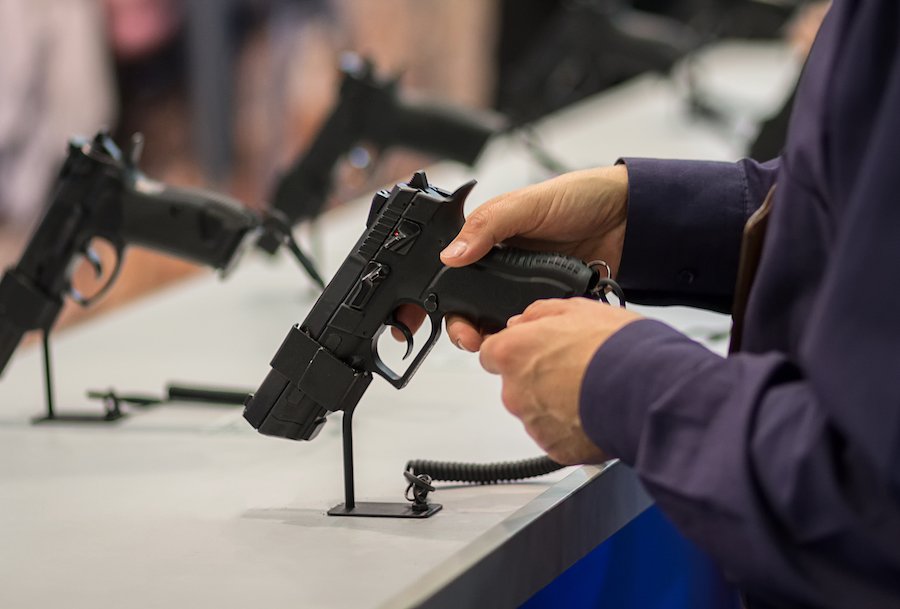In Arizona, defendants can get a restoration of their civil rights after completing their felony sentence. If it was a first felony conviction, this happens automatically. If it was a second or subsequent offense, it requires an application. If approved, it will restore the right to:
- vote,
- hold public office, and
- serve on a jury.
It may also restore the defendant’s right to possess firearms, though there are some limitations.

In Arizona, defendants can get a restoration of their civil rights after completing their felony sentence. Although, restoration of those rights is at the court’s discretion.
1. How does the restoration of civil rights work in Arizona?
Defendants who are convicted of a felony-level offense will lose certain civil rights. These include the right to:
- possess a firearm,
- hold public office,
- serve on a jury, and
- vote.
After a defendant has served their sentence and completed all of the terms of their release, they become eligible to restore these rights. Arizona courts are required to notify defendants of this right to restoration during the sentencing hearing.1 Restoring those rights is at the court’s discretion.2
Defendants who already have at least one felony conviction on their criminal background will have to apply to have their rights restored. Defendants cannot apply until they have:
- finished their prison sentence and completed probation or parole, or
- received an absolute discharge from imprisonment and waited for 2 years.3
The application to restore civil rights can be filed by:
- the defendant,
- the defendant’s criminal defense lawyer, or
- the probation officer.4
It can be filed with the court clerk in:
- the Arizona Superior Court where the conviction occurred, if the conviction happened in state court, or
- the Superior Court where the defendant now resides, if the conviction happened in federal court.5
The court is not allowed to charge a filing fee for this application.6
When the applicant has a prior felony conviction, the application will trigger a hearing. The victim of the crime has a right to be present and heard.7 The applicant does not have a right to be present.
If approved, the defendant’s civil liberties will be restored.8 His or her criminal record will be updated by the Arizona Department of Public Safety to include an annotation that the defendant’s civil rights were restored.9
If denied, the court will explain its reasons for the denial in writing.10 The applicant may be able to file a request for reconsideration.
The restoration of the defendant’s right to possess a firearm requires a separate process.11
The loss of these civil rights usually does not happen after a misdemeanor conviction.
2. What if this was for a first felony conviction?
Under Arizona law, if the defendant’s criminal conviction was for a first-time felony offense, then the restoration of his or her civil rights is automatic.12 They do not have to file an application to have their rights restored.13 There is no need for a hearing. Automatic restoration will happen after the defendant has either:
- completed probation or parole after serving their prison sentence, or
- received an absolute discharge from the Arizona Department of Corrections or the U.S. Bureau of Prisons.14
If the defendant has received an absolute discharge but has not completed restitution payments, he or she will have to apply for a restoration of rights as if they had a prior felony conviction.15
This automatic process does not implicate or restore the defendant’s right to possess a firearm. Restoring that right requires a separate application.16

Generally, applications to restore gun rights after a felony conviction can be filed once 2 years have passed since the applicant’s absolute discharge.
3. What about gun rights?
Restoring the right to possess a firearm is distinct from restoring other civil rights in Arizona. However, they can both be pursued at the same time.
Generally, applications to restore gun rights after a felony conviction can be filed once 2 years have passed since the applicant’s absolute discharge.
However, people who have been convicted for a serious offense – or for what would be a serious offense in Arizona, if the conviction happened in another state – have to wait 10 years before applying to restore their gun rights.17
Defendants convicted for a dangerous offense in Arizona, or for a crime in another state that would be a dangerous offense in Arizona, lose their eligibility to restore their firearm rights.18
Additionally, certain criminal offenses, like a misdemeanor offense for domestic violence, can make someone a prohibited possessor of firearms under federal law, even if it was not a federal conviction.19 Restoring gun rights in these situations may require getting the conviction set aside.
4. How is this different from expungement?
Restoring civil rights gives someone who has been previously convicted for a serious crime their fundamental rights back. Expungement seals the prior conviction from public view.
Unlike many other states, the state of Arizona does not have an expungement law. Prior convictions can always been seen by interested members of the public or anyone who conducts a background check. If a person’s rights have been restored, the prior conviction will still be visible. It will just have an annotation that the person’s civil rights have been given back to them.
5. How is this different from a set aside?
In Arizona, a conviction set aside will restore a defendant’s civil rights. However, it is not automatic for people who did not have a prior felony conviction. Unlike the restoration process, getting a conviction set aside will also annotate someone’s criminal record with a line that says the conviction has been “set aside,” which means that the felon has completed his or her sentence.
There are also numerous criminal cases that are eligible for revocation of rights, but that are not eligible for a set aside. Some of these are:
- dangerous offenses involving a deadly weapon or dangerous instrument,
- offenses that require sex offender registration,
- driving on a suspended license, or
- any felony conviction involving a victim under the age of 15.20

Contact us for help
Legal References
- ARS 13-906(A).
- ARS 13-908(A).
- Same.
- ARS 13-908(B).
- ARS 13-908.
- ARS 13-908(B).
- ARS 13-906(E).
- ARS 13-908(F).
- ARS 13-906(B).
- ARS 13-906(D).
- ARS 13-908(G).
- ARS 13-907(A).
- ARS 13-907(B).
- ARS 13-907.
- ARS 13-908(A).
- ARS 13-907(C).
- ARS 13-910(A).
- Same.
- 18 USC 921(a)(33)(B)(ii).
- ARS 13-905(K).
